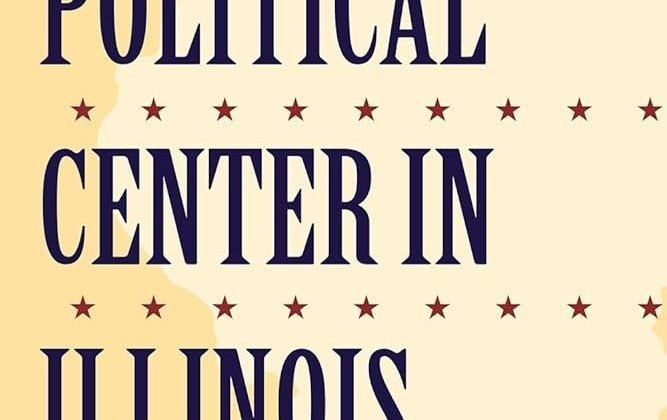

Ian T. Iverson is Associate Editor of the John Dickinson Writings Project. This interview is based on his new book, Holding the Political Center in Illinois: Conservatism and Union on the Brink of the Civil War (Kent State University Press, 2024).
JF: What led you to write Holding the Political Center in Illinois?
II: In my final semester of college, I worked as an undergraduate research assistant, transcribing the correspondence of Lyman Trumbull, a senator from Illinois from 1855 to 1873. I was struck by how the label “conservative” was used in letters to Trumbull in the 1850s in ways that felt foreign, and I was curious to learn what his correspondents meant by the term. Upon starting graduate school, my advisor, Elizabeth Varon, encouraged me to pursue the topic, and my exploration led to Holding the Political Center.
JF: In 2 sentences, what is the argument of Holding the Political Center in Illinois?
II: Holding the Political Center reveals how political parties in antebellum (pre-Civil War) Illinois espoused competing visions of conservatism as each drove to the ideological center to secure an electoral majority. Although this fierce partisan battle was highly divisive and reshaped national politics, a shared commitment to the Union allowed Illinois Democrats, led by Stephen A. Douglas, to unite behind President Abraham Lincoln in the aftermath of Fort Sumter in support of the Northern war effort.
JF: Why do we need to read Holding the Political Center in Illinois?
II: Often, even very well-read students of the Civil War struggle to understand the extended political crisis that led to bloodshed. Historians sometimes reduce the tumult that led to the war into a struggle between an abolitionist North and a proslavery South or between proslavery Democrats and antislavery Republicans. By examining Illinois, the Northern state that produced both Abraham Lincoln and Stephen A. Douglas, we can see how most Northerners balanced a distaste for slavery with an unconditional commitment to preserving the Union established by their Revolutionary forebears. Many white Illinoisians viewed both Southern “fire-eaters” and Northern abolitionists as dangerous radicals who threatened national stability. The Democratic and Republican coalitions that emerged amid the cacophony of the 1850s offered competing solutions to the political crisis sparked by the potential expansion of slavery into the West, but both groups remained firmly committed to the Constitution and the Union, allowing them to unite behind the national flag when Southern secessionists fired on Federal troops at Fort Sumter.
JF: Why and when did you become an American historian?
II: I developed an intense interest in American history early in life and grew up participating in Civil War reenactments. Early mentors in high school and as an undergraduate at Princeton University encouraged me to pursue a career in history. I subsequently earned a PhD in American history at the University of Virginia and have worked full-time as a historical documentary editor since finishing my degree in 2022.
JF: What is your next project?
II: Right now, my intellectual energy is dedicated to my role as associate editor of the John Dickinson Writings Project. We are working to publish the complete writings of this too-often overlooked and misunderstood Founding Father in a projected 13-volume set.
JF: Thanks, Ian!